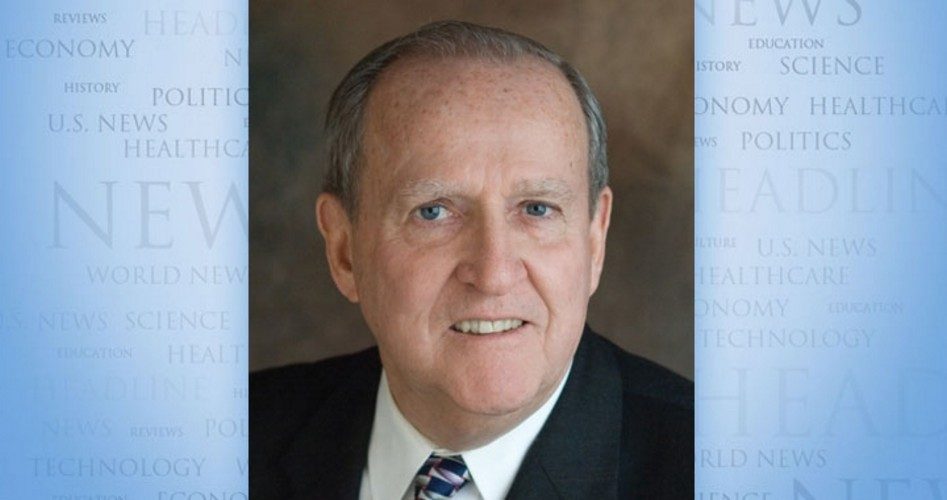
After a career that saw him teaching at Williams College in Massachusetts for 40 years, Professor James MacGregor Burns entered into eternity on July 15, 2014. Widely heralded as a champion of numerous left-wing causes he never abandoned, he authored 20 books and influenced many thousands of students. Friends and admirers have always lauded his works, especially his biographies of Franklin Roosevelt, John Kennedy, and Edward Kennedy. For what he wrote about FDR, including a slight slap on the president’s wrist for not tying our nation more tightly to the USSR during WWII, he was awarded a Pulitzer Prize and a National Book Award. In 1958, he won the Democratic Party nomination for a seat in the U.S. House for the First Congressional District in Massachusetts, but was soundly defeated in the Fall election.
A life-long advocate of restructuring the U.S. Constitution to steer more power to the Executive Branch, Burns issued a 1984 work entitled The Power to Lead: The Crisis of the American Presidency. In it, he urged a rewrite of portions of the Constitution during the forthcoming bi-centennial celebrations of the 1787 Constitutional Convention, the 1789 ratification of a new Constitution, and the 1791 addition of the Bill of Rights to the new “law of the land.”
Obituaries characterizing Burns as a forward-looking thinker mentioned The Power to Lead but failed to call attention to its truly controversial (revolutionary?) plans for America. It was in this book that Burns wrote of his disdain for the American system of limited government, preferring instead creation of an imperial presidency vested with greatly enhanced powers. He wrote:
Let us face reality. The framers [of the Constitution] have simply been too shrewd for us. They have outwitted us. They designed separate institutions [branches] that cannot be unified by mechanical linkages, frail bridges, tinkering. If we are to “turn the founders upside down” — to put together what they put asunder — we must directly confront the constitutional structure they erected.
With his several proposals for restructuring the Constitution already well known, Burns was nevertheless named co-chairman of Project ’87 calling for “appraisal of this unique document” during the period surrounding its 200th anniversary. Later, a Committee on the Constitutional System (CCS), of which 15 (out of a total of 41) board members held membership in the Council on Foreign Relations, relied on Burns’ suggestions for reconstructing the Constitution. Many of the CCS bigwigs even promoted the idea of a constitutional convention.
Somewhat of a realist, Burns later suggested that the constitutional changes he advocated might possibly be enacted “following a stupendous national crisis and political failure.” Later Democratic allies have similarly pointed to opportunities to enact change during a real or contrived “crisis” that could befall our nation.
Beginning in the mid-1980s, and continuing to this day, threats to the Constitution posed by Burns and others, whether radical amendments or a complete overhaul via a constitutional convention, have been successfully blocked by the efforts of The John Birch Society, its affiliated magazine The New American, and several allies. While the plans of James MacGregor Burns weren’t enacted, the fight to preserve the Constitution continues.
John F. McManus is president of The John Birch Society and publisher of The New American. This column appeared originally at the insideJBS blog and is reprinted here with permission.


